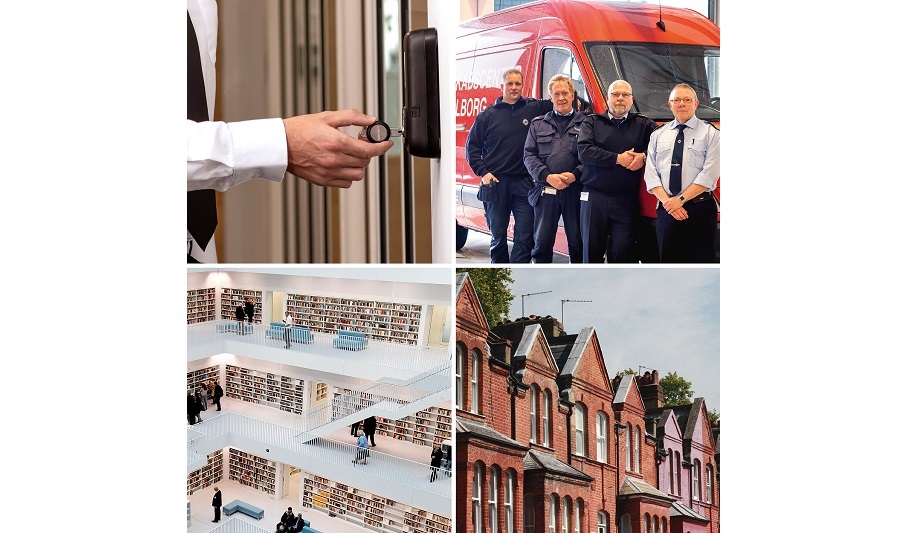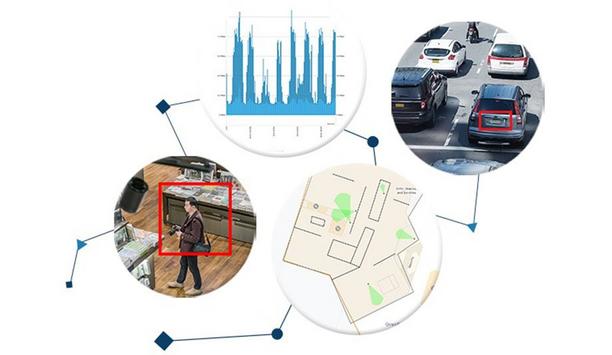Resilience and efficiency have become watchwords for the public institutions, before, during and after the ongoing health crisis. In delivering services fit for the modern world, these institutions need more than just innovation and accountability. They require flexibility and agility, too, including in how they approach security.
The lock and key have enjoyed public trust for a long time. Keys were used in Ancient Egypt and Assyria, and warrant a mention in the Christian Old Testament. As a technology the key is familiar and proven, user-friendly and dependable. It can also be inflexible and time-consuming to manage.
The security challenges of delivering public services do not stand still, but standard mechanical keys cannot move with oneself. Filtering access intelligently and dynamically has become part of security’s job description.
Yet there is no need to dispose of the key altogether. One can adapt it, rather than throw it out. Intelligent, programmable keys combine the powerful features of electronic access control with the convenience of a mechanical key. They are keys, familiar and user-friendly… but evolved.
When the key has a brain, one can do more with less. These efficiencies are critical in a world where demands on the public institutions are at levels not seen in generations.
Cut workload and solve the problem of lost keys
One [lost] key cost from €3,000 to €4,000 for changing cylinders and replacing the keys"
Lost keys present mechanical security with its most intractable problem. When a key goes missing, time and budget are expended to remedy the situation. Extensive rekeying and reissuing to relevant keyholders are complex and expensive. Programmable keys, however, solve the problem quickly.
The French town of Villiers-le-Bel, north of Paris, faced these familiar key management challenges. Each person in their Municipal Technical Centre carried approximately 40 physical keys. If one was lost or stolen, all compromised cylinders had to be changed. To prevent unauthorised access, all the keys had to be replaced, too, at great expense. Key duplication costs were mounting.
“One [lost] key cost from €3,000 to €4,000 for changing cylinders and replacing the keys,” explains Fabrice Girard, Territorial Technician at the town’s Municipal Technical Centre. To fix this expensive lost key problem, Villiers-le-Bel city administrators chose to combine trusted mechanical security with new electromechanical key-operated locking, all managed within the same flexible, wireless access control system. Now lost or stolen electronic keys are cancelled instantly using secure cloud software which works inside a standard browser, no software installation required.
Administrators can program access rights for any key, padlock or cylinder. They filtre access to specific sites and doors according to the precise requirements of every municipal employee.
Keep residents safe in their homes
In Aalborg, Denmark, around 3,000 citizens in home care have programmable locking cylinders installed at their front door. This replaces a cumbersome mechanical master-key system. Aalborg’s installation was tailored to meet the needs of this vulnerable group of city residents.
Certified technicians simply replaced each old cylinder with a programmable cylinder
If a home care resident loses their key, its access rights can be deleted from the system without the need for a lock replacement — keeping the keyholder’s home safe and saving the city time and money on rekeying.
Managing Aalborg’s system is straightforward. Lock installation was quick and easy: certified technicians simply replaced each old cylinder with a programmable cylinder — with no wiring and no major alterations to the door. Aalborg’s fire brigade quickly took over the maintenance process. Brigade staff now grant or revoke access, and tailor permissions for different users or locations according to defined needs.
In Skellefteå, Sweden, electromechanical locking has given local firefighters faster, safer access to any building. To speed up emergency response times and improve firefighter safety, the local service fitted houses with secure façade key cabinets.More rapid response means a better chance to prevent a fire spreading
Property keys are stored inside the cabinets, so authorised firefighters get rapid building access if there is a fire. When the emergency call comes, firefighters update their individual, programmable key at the station or while on the move, using a remote key updater kept in the fire engine. There’s no longer any need for fire stations to hold multiple sets of keys or for off-site firefighters to divert to the station to collect the right key.
More rapid response means a better chance to prevent a fire spreading. Safety is improved for everyone, Skellefteå residents at home and firefighters at work.
Clear workflow bottlenecks in public housing
With crime against empty properties on the rise, public authorities in the English city of Rotherham aimed to minimise the time a council house stands vacant. However, workers from multiple departments require access to prepare a property for a new tenant. Passing keys securely between all relevant staff members was a major cause of delay.
Security managers issue the precise permissions which every staff member needs
At Rotherham Metropolitan Borough Council (RMBC), intelligent key technology helped streamline these workflows, upgrading security and saving money at the same time. RMBC identified physical key handover as a major bottleneck in their workflow. They needed a solution to speed up the process.
Now, each relevant RMBC staff member is issued with their own programmable key. Using simple online software, security managers issue the precise permissions which every staff member needs. The access rights of any key can be amended or revoked at any time. Physical handover of mechanical keys, and the time and money spent coordinating this process, has been eliminated.
Preserve the fabric of historic buildings, and the design integrity of new spaces
Building type can make a big difference to the access control one chooses. Public spaces inside protected heritage buildings often cannot opt for card- and reader-based access control. Here, wireless electronic cylinders which simply replace existing mechanical locks solve the problem, preserving doors which may be centuries old.
Intelligent key security is hardly noticeable for the library’s many visitors
The issue of aesthetics also affects modern public spaces, albeit differently. In Stuttgart, innovative design was a key element of the city’s new library building. Door security should be discreet and not disrupt the vision of Korean architect, Eun Young Yi. This was the first public building in Stuttgart’s Europaviertel, a unique creation with a double façade with glass bricks, a brightly lit atrium four storeys high, and public entrances on all four sides.
Almost as soon as it opened, the building was declared an architectural icon — “instantly one of the world’s most beautiful libraries.” Intelligent key security is hardly noticeable for the library’s many visitors, yet critical for protecting Stuttgart’s precious public heritage
Save time and money managing keys for a mobile workforce
Many public services involve managing and directing a mobile or contractor workforce. Mileage expense mounts up when workers must return to base to collect keys or update their access rights.
With a Bluetooth-powered solution, everyone carries their own programmable key
Mobile workers use more fuel and increase a carbon footprint. One makes a business more sustainable quickly if one reduces the mileage one travels.
Reducing miles while maintaining security is not easy, if one relies on mechanical keys to secure remote or dispersed sites. Bluetooth-enabled intelligent keys eliminate the need for workers to return to headquarters to collect or return a mechanical key. With a Bluetooth-powered solution, everyone carries their own programmable key and keeps its access rights up to date on the move, simply by making an encrypted connection to a secure smartphone app — meaning fewer miles driven and less money wasted on unnecessary fuel.
One technology powers all the solutions
All the installations referenced above — and many, many more across the full spectrum of public services — run on the same technology: CLIQ® from ASSA ABLOY.
CLIQ combines electronic and mechanical security in a range of wireless cylinder applications, including a full range of mechatronic and electronic cylinders and padlocks. CLIQ locks are installed without wires: every cylinder’s power is supplied by a battery inside the CLIQ key.
These keys are physically identical and programmable by a system administrator using a desktop updater; by keyholders with a portable programmer; or in the case of CLIQ Connect Bluetooth-enabled keys, via an encrypted connection to a secure smartphone app, minimising both wasted journeys and unnecessary social contact between workers and office staff. Intuitive software makes it simple to manage access rights, enable and disable keys and customise access schedules, on site or on the go.
To learn how you can put CLIQ® intelligent key technology to work in agile, flexible, secure public services, download a free introductory guide at https://campaigns.assaabloyopeningsolutions.eu/eCLIQ







